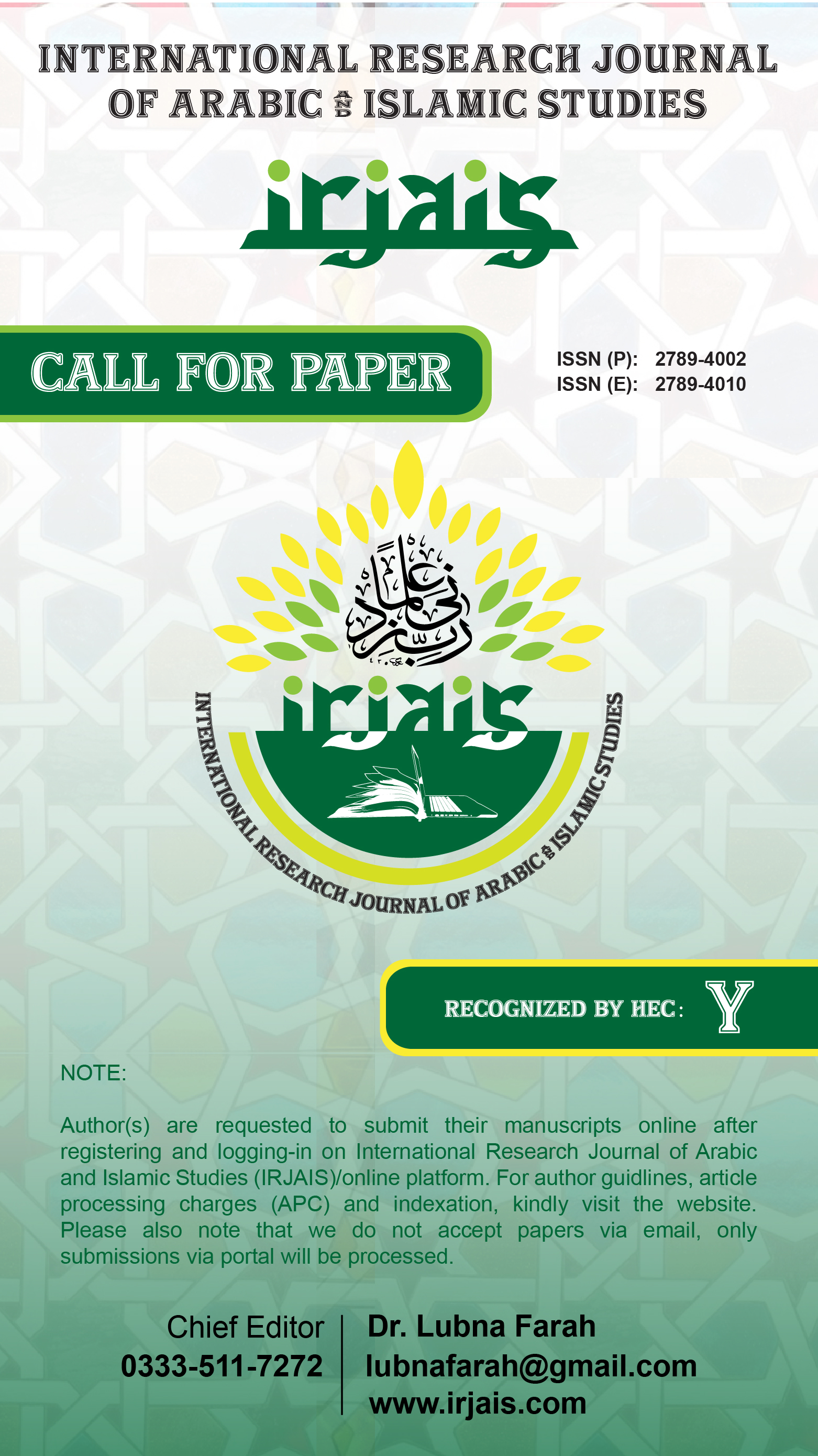حصر و اضافہ اور مقصودات ِ دین : فقہاء و اصولیین کی آراء کا ارتباطی جائزہ
Restriction and Addition and the Objectives of Sharia: A Relational Analysis of the Opinions of Jurists and Usuliyyin
Keywords:
Restriction, Addition, Objectives of Sharia, Islamic Law, Jurists, Usuliyyin, Ijtihad, Maqasid al-Sharia, Flexibility, Legal TheoryAbstract
This study examines the interplay between the concepts of restriction (حصر) and addition (اضافہ) within the objectives of Islamic law (مقصودات ِ دین) as interpreted by classical and contemporary Islamic jurists (فقہاٰء) and scholars of Islamic legal theory (اصولیین). The paper aims to elucidate how these scholars reconcile the inherent rigidity of legal texts with the dynamic and evolving needs of society. By exploring key jurisprudential debates and principles, the research highlights the methods used by jurists to balance textual fidelity with contextual flexibility. The analysis is framed within the broader objectives of Sharia (maqasid al-sharia), which emphasize the preservation of religion, life, intellect, progeny, and property. Through a detailed examination of primary sources, including seminal works of classical jurists like Imam Al-Ghazali and contemporary scholars, the study provides insights into the mechanisms of ijtihad (independent reasoning) and its role in the dynamic application of Islamic law. The findings suggest that the concepts of restriction and addition are not mutually exclusive but rather complementary tools that jurists utilize to achieve the overarching goals of Sharia. This relational analysis underscores the importance of a balanced approach in Islamic jurisprudence, one that honors the sanctity of legal texts while addressing the practical realities of a changing world.





